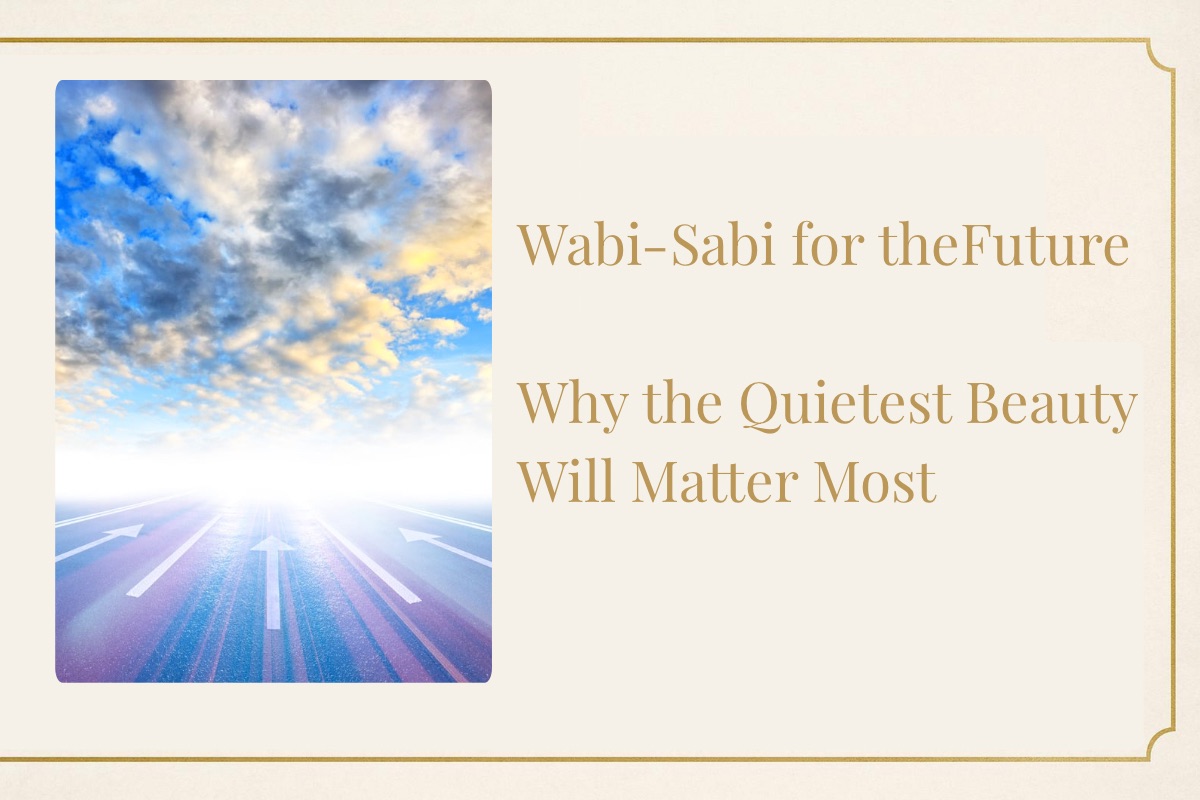2025/09/27
Wabi‑Sabi for the Future: Why the Quietest Beauty Will Matter Most

The world is getting louder, faster, and fuller — but our hearts are getting quieter, more tired, more distant.
We’re surrounded by more choices, more updates, more pressure to be perfect.
In this world, wabi‑sabi is not a nostalgic escape.
It is a quiet revolution.
A reminder that beauty is already here — if we’re still enough to notice it.
In our era, we consume more information than ever. Notifications, news, updates — they bombard us nonstop. But while our minds are full, our inner life often feels empty. We may know more facts, but feel less.
In contrast, simplicity offers relief. A quiet room, a single flower, unhurried tea — they don’t demand much, yet they offer everything: space, clarity, rest. That’s the gift of silent beauty.
While minimalism is trendy, wabi‑sabi is deeper. It’s not about less for aesthetics’ sake. It’s about embracing imperfection, honoring age, cherishing stories. It doesn’t fade with fashion — it transcends it.
Wabi‑sabi teaches us not to run from change, but to welcome it. Cracks, fading, growth — these are not flaws but witnesses of life. To live with wabi‑sabi is to say “yes” to transience.
In a world where machines replicate, human imperfection becomes sacred. The fingerprint in the glaze, the slight irregularity in stitching — these are signatures of the soul. Wabi‑sabi reminds us that human touch still matters.
Perfect things may feel cold. Imperfection invites trust — it says, “I am real.” When something is slightly flawed, we sense a human story behind it. That trust builds connection.
Slowing your pace isn’t laziness — it’s resistance. It says, “I refuse to be driven entirely by speed.” In slowing, we reclaim our interior life.
When we do less, we see more. When we stop cluttering our lives, beauty emerges in what remains. Wabi‑sabi helps us rediscover the essential.
In an age of noise and haste, wabi‑sabi whispers a different path. To embrace stillness, to welcome imperfection, to find value in what remains. The future doesn’t demand more — it longs for deeper awareness. May we answer its call.

